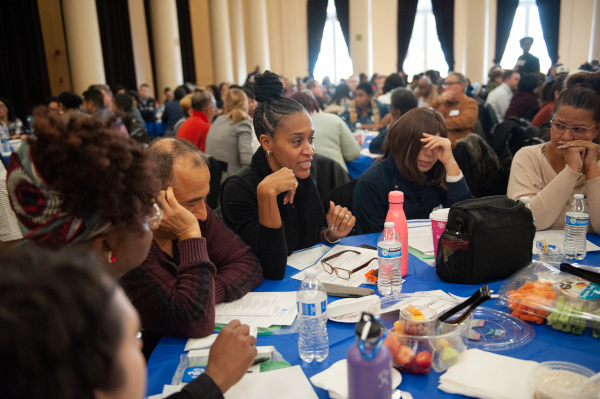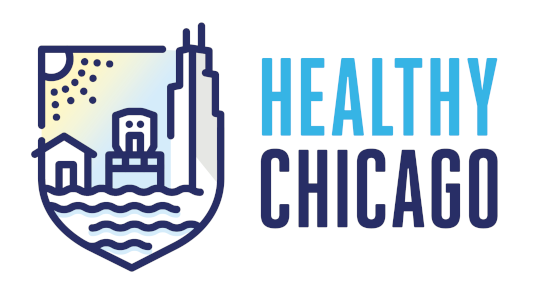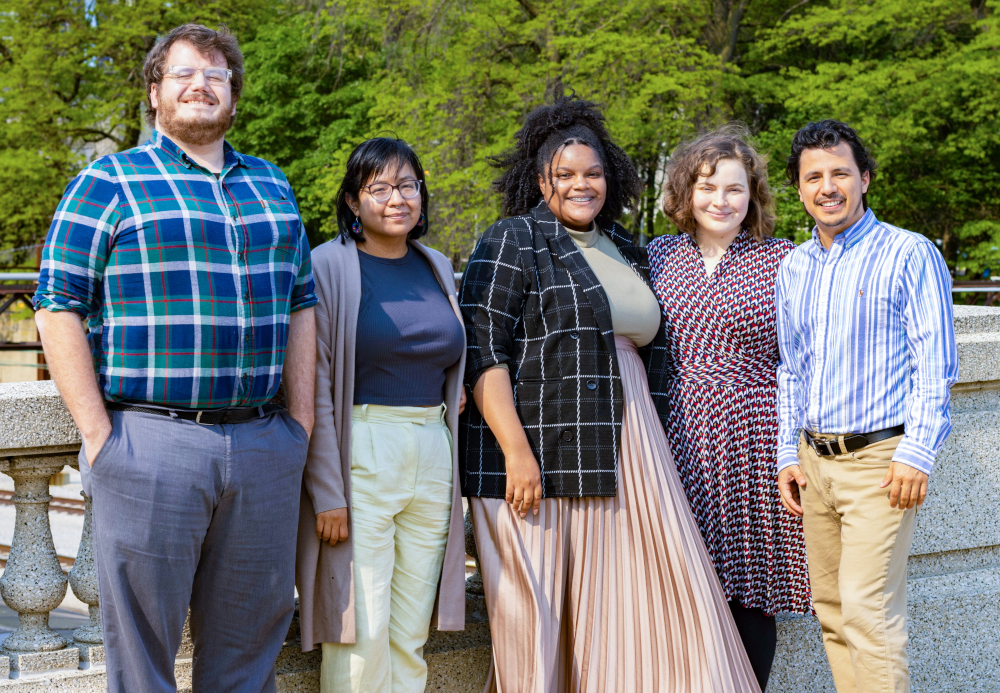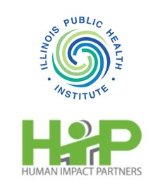About Chicago’s Health Equity In All Policies Initiative
Learn about the structure and background of Chicago’s Health Equity in All Policies work
Our approach
Health Equity in All Policies (HEiAP) is a collaborative approach to improving the health of all people by putting equity at the center of decision-making across policy areas and sectors. HEiAP shares power through transformative community and government partnerships, embeds a whole-of-government approach to collaboration among City departments and agencies, supports community-driven policy change, and creates co-owned strategies for addressing health inequities.


Our connection to Healthy Chicago
Policy and systems change across sectors is an essential part of implementing Healthy Chicago 2025 to address the root causes of health inequity and reduce the racial life-expectancy gap. Healthy Chicago 2025 calls for a Health Equity in All Policies approach in five priority areas: housing, food, environment, neighborhood planning and development, and institutional change.
Our team
The Health Equity in All Policies team was established in 2022 and sits within the Bureau of Community Health. The team supports advancing policies, practices, and decisions across City government that eliminate health and racial inequities and benefit the health of all Chicagoans.
Sydney Edmond
Projects
Administrator
Susan Martinez
Coordinating
Planner
Eduardo Munoz
Coordinating
Planner
Clayton Oeth
Senior Policy
Analyst

We acknowledge with gratitude the contributions of all past employees and interns, including Kate McMahon, who is the founder of the Chicago Department of Public Health (CDPH) HEiAP Team and is presently serving as the Director of Policy for the CDPH.
Shareable documents
- HEiAP Program Summary: English | Spanish
- News and press releases
- Health in All Resolution, Mayor Emanuel
- Racism as a Public Health Crisis, Mayor Lightfoot
Chicago’s History of Health Equity in All Policies
2016
- City Council adopts Health in All Policies (HiAP) Resolution
- CDPH conducts first Health Impact Assessment
- Healthy Chicago 2.0 formalizes HiAP approach
2019
- CDPH advances implementation of Task Force recommendations
2020
- Healthy Chicago 2025 calls for a Health Equity in All Policies (HEiAP) approach
- CDPH conducts strategic planning for HEiAP
2021
- Mayor’s Office declares racism a public health crisis
- CDPH convenes HEiAP community accountability committee
2022
- CDPH establishes the HEiAP Office
- CDPH advances major HEiAP projects, including: Racial Equity Action Plans; partnerships on citywide planning and ETOD; Cumulative Impact Assessment; and Food Equity Council
2023
- HEiAP team Launches Equity Decision Support Tool
Health in All Policies Task Force
The City of Chicago’s Health in All Policies resolution, passed in 2016, called for the creation of a Health in All Policies Task Force to develop recommendations on how City departments and sister agencies can collaborate to improve health.
Review the recommendations summary report and other documents developed by and about the work of the Health in All Policies Task Force.
Healthy Chicago 2025 – Addressing root causes and structural inequities
Policy and systems change across sectors is an essential part of implementing Healthy Chicago 2025 to address the root causes of health inequity and reduce the racial life expectancy gap. Healthy Chicago 2025 calls for a Health Equity in All Policies approach, focusing on six priority areas: housing, food, environment, public safety, neighborhood planning and development, and institutional change.
Environmental scan
The Chicago Department of Public Health partnered with the Illinois Public Health Institute to implement a multi-phased environmental scan and partner engagement process from 2020 to 2021 to inform opportunities for the HEiAP initiative to more effectively address root causes of health through government and community partner collaboration. This process was co-led with a community accountability committee comprised of nine representatives from community-based organizations primarily working on the West and South Sides of Chicago.
Our land and labor acknowledgements
The City of Chicago is located on land that is and has long been a center for Native peoples. The area is the traditional homelands of the Anishinaabe, or the Council of the Three Fires: the Ojibwe, Odawa, and Potawatomi Nations. Many other Nations consider this area their traditional homeland, including the Myaamia, Ho-Chunk, Menominee, Sac and Fox, Peoria, Kaskaskia, Wea, Kickapoo, and Mascouten. The City specifically acknowledges the contributions of Kitihawa of the Potawatomi in fostering the community that has become Chicago. We acknowledge all Native peoples who came before us and who continue to contribute to our City. We are committed to promoting Native cultural heritage.
- Citation: City of Chicago
We must recognize and mourn the loss of life and liberty for enslaved Black people in the United States. Our country as we know it today, including its culture, economic growth, and development has been made possible by the labor of enslaved Africans and their descendants who suffered transatlantic trafficking, chattel slavery, and dehumanization through segregation. It is imperative that we acknowledge the lasting impact on Black communities and commit ourselves to the work of justice.
Other acknowledgements 
The HEiAP team collaborates with a group of consultants and community leaders who play an integral role in developing the work to put equity at the center of decision-making. We express gratitude to our Community Accountability Committee, the Illinois Public Health Institute, Human Impact Partners, MUSE Community + Design, Rudd Resources, and every other expert who has helped shape our approach to embed equity across policy areas and sectors.




